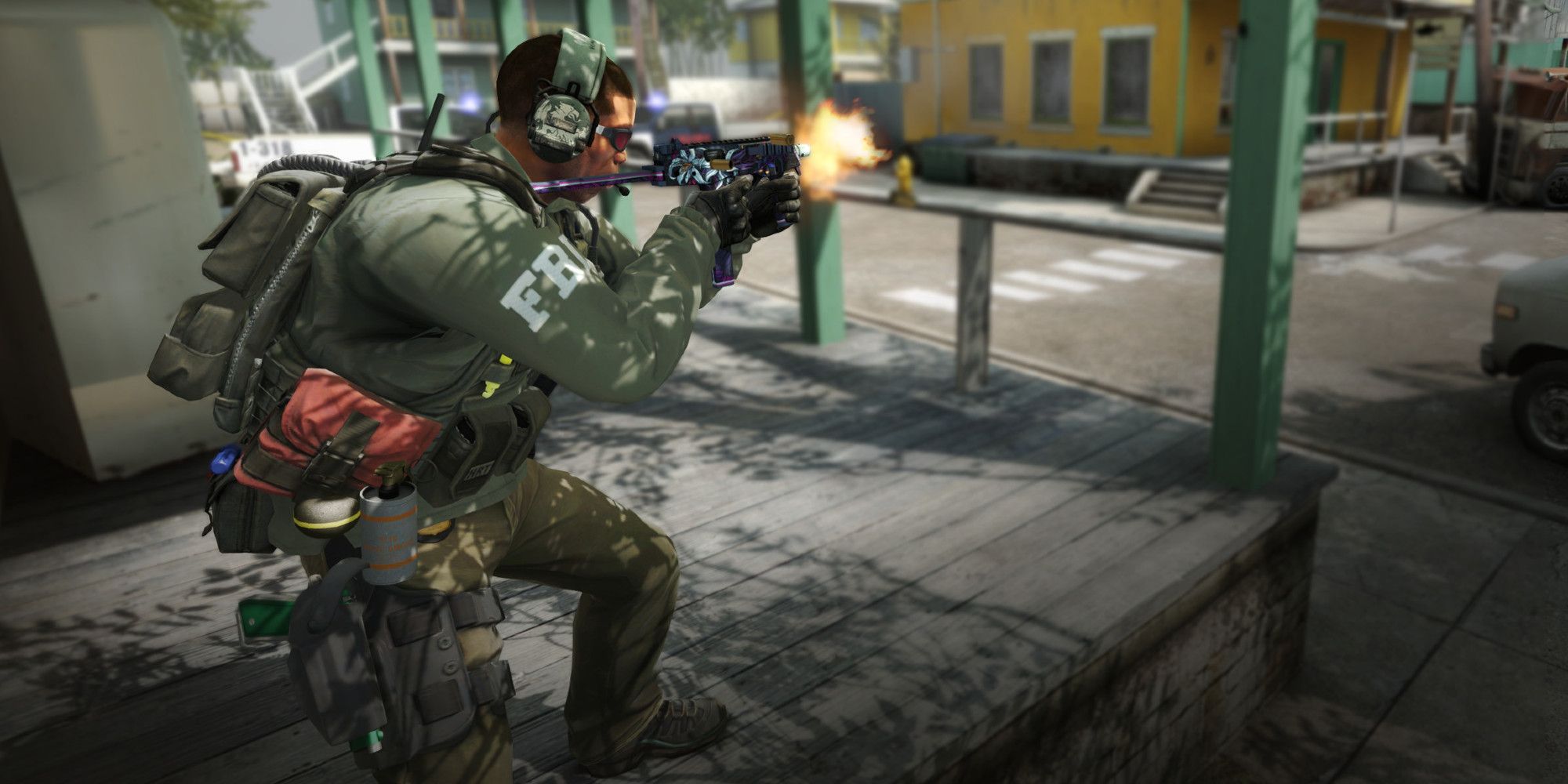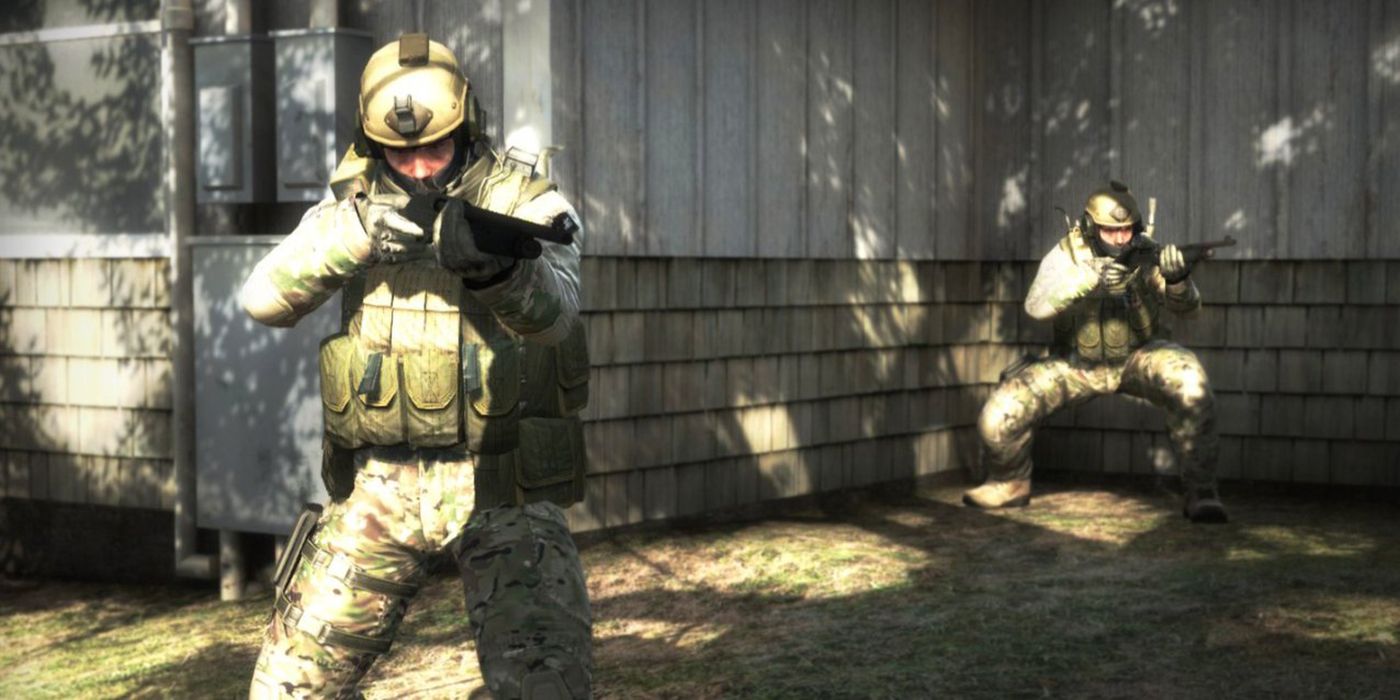Counter-Strike: Global Offensive (CS:GO) has seen a drop in player numbers after charging $15 for fans to play competitive ranked matches in an attempt to prevent cheating in-game. CS:GO went free-to-play in December 2018 in a sudden decision that upset fans, but now it seems that the developers have reversed this decision to a point in an effort to protect gameplay.
Although CS:GO is now one of the most recognizable multiplayer shooters on the market, the Counter-Strike series began as a mod for Half-Life, also developed by Valve. Originally developed as a sequel to Counter-Strike: Source, CS:GO was released in 2012 and is regularly updated with new maps, weapons and more. This multiplayer, online first-person shooter has two teams fight against each other in different game modes. The game has a large esports following with global competitions, and when the game went free-to-play, its player base grew tremendously.
According to PC Gamer, the CS:GO patch that was released on June 3 included a complete reworking of the game's Prime status, which is a status required to play ranked competitive matches in-game. Previously, players achieved this status by buying it or by playing enough of the game to earn it. However, after the rework, Prime status can only be bought. On a CS:GO blog, developers admitted that having the game be free-to-play became "an incentive for bad actors to hurt the experience of both new and existing players," and that this is the team's way of trying to improve the overall experience of new and existing players. Although creative CS:GO players have been trolling cheaters in an effort to dissuade them, Valve is hoping this will work more permanently.
Unfortunately, as a result of Valve's changes to CS:GO Prime status, there has been a noticeable player drop. The SteamCharts report of CS:GO's player count averages say there was a 16.7% drop in players since the patch came out in June. That is the equivalent of the loss of over 100,000 players. Although the game's numbers fluctuate, just as any game does, CS:GO has not seen a steeper month-to-month decline since 2018. This is even considering that an exploit was found earlier this year that let hackers steal user's personal information.
Developers wanted to stress that players will still be able to enjoy the games and modes they already play, and the matches will still use skill-based matchmaking. The only difference is the absence of a Skill Group/rank. Free-to-play games are abundant and popular for games later in life, but they definitely have their disadvantages. Considering how old the game is, this may have been the easiest time- and labor-sensitive way to try and fix the issue with cheaters in-game. It's unfortunate that it had to get to the point where they had to change their model back to a paywall, but at least there are still ways that players can enjoy it for free.
The outrage to the fee for Prime is very similar to the initial outrage players had when it first went to free-to-play. It seems as though CS:GO is trying to find a way to make its core player base happy, protect its game from cheaters, and still appeal to potential players. Counter-Strike: Global Offensive has been through a lot the last year, from having more players than ever before to now having a very steep decline in players. Hopefully, after the new Prime status fee has had a chance to set in, players will see a positive change and former gamers will come back.
CS:GO is available on Steam.
Source: PC Gamer, Counter-Strike


